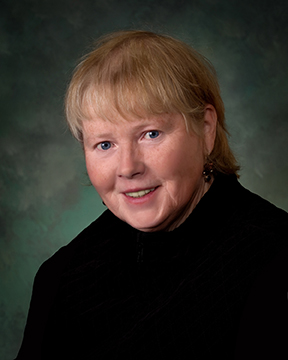
By Bernadette V. Meade, DO
Caregiving may be one of the most important roles you will ever take on in your life. It is not an easy role, and most of us are never prepared for it.
More than 65 million people, or 29% of the U.S. population, provide care for a chronically ill, disabled or aged family member or friend during any given year and spend an average of 20 hours per week providing care for their loved one. The typical family caregiver is a 49-year-old woman caring for her widowed 69-year-old mother who does not live with her. She is married and employed. Approximately 66% of family caregivers are women. More than 37% have children or grandchildren under 18 years old living with them.
Being a family caregiver for a spouse, parent, child or loved one takes a lot of time, effort and work. It challenges you both intellectually and emotionally. You may have become a caregiver suddenly and without warning, or perhaps your role evolved slowly over time.
Caregiving can take a toll on your health, with almost a quarter of family caregivers caring for loved ones for 5 years or more report their health is fair or poor. Caregivers often skip their own doctor appointments, have poor eating habits and don't get enough exercise.
November is National Family Caregivers Month, and I believe that it is vital for caregivers to seek out resources that can help. I've pulled some information from the
Caregiver Action Network, an organization with tools for caregivers of all ages to make sure that both you and your care recipient are living the best lives possible, as a starting point for caregivers to find some resources. I've included the list of the top 10 tips for caregivers from the site:
- Seek support from other caregivers. You are not alone!
- Take care of your own health so that you can be strong enough to take care of your loved one.
- Accept offers of help and suggest specific things people can do to help you.
- Learn how to communicate effectively with doctors.
- Caregiving is hard work so take respite breaks often.
- Watch out for signs of depression and don't delay in getting professional help when you need it.
- Be open to new technologies that can help you care for your loved one.
- Organize medical information so it's up to date and easy to find.
- Make sure legal documents are in order.
- Give yourself credit for doing the best you can in one of the toughest jobs there is!
Dr. Meade specializes in working with patients 60 and older and helping them to maintain a quality life for as long as possible. She is the medical director of Pioneer Manor and
Hospice, and is the physician for Campbell County Medical Group
Geriatric Medicine clinic, which is in the Main Clinic, 501 S. Burma Avenue, and is open Monday-Friday, 8 am-5 pm. Learn more at
www.cchwyo.org/Geriatric.